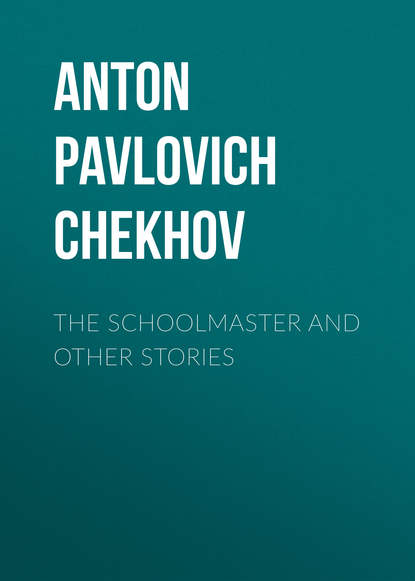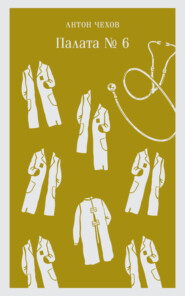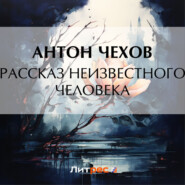По всем вопросам обращайтесь на: info@litportal.ru
(©) 2003-2024.
✖
The Schoolmaster and Other Stories
Настройки чтения
Размер шрифта
Высота строк
Поля
"Why, what is it?"
"I can't tell you. It's a secret. It's something so private that I could only speak of it in my prayers. But if you like.. as a sign of friendship, between ourselves.. only mind, to no one, no, no, no… I'll tell you, it will ease my heart, but for God's sake.. listen and forget it.."
Frolov bent down to Almer and for a minute breathed in his ear.
"I hate my wife!" he brought out.
The lawyer looked at him with surprise.
"Yes, yes, my wife, Marya Mihalovna," Frolov muttered, flushing red. "I hate her and that's all about it."
"What for?"
"I don't know myself! I've only been married two years. I married as you know for love, and now I hate her like a mortal enemy, like this parasite here, saving your presence. And there is no cause, no sort of cause! When she sits by me, eats, or says anything, my whole soul boils, I can scarcely restrain myself from being rude to her. It's something one can't describe. To leave her or tell her the truth is utterly impossible because it would be a scandal, and living with her is worse than hell for me. I can't stay at home! I spend my days at business and in the restaurants and spend my nights in dissipation. Come, how is one to explain this hatred? She is not an ordinary woman, but handsome, clever, quiet."
The old man stamped his foot and began singing:
"I went a walk with a captain bold, And in his ear my secrets told."
"I must own I always thought that Marya Mihalovna was not at all the right person for you," said Almer after a brief silence, and he heaved a sigh.
"Do you mean she is too well educated?.. I took the gold medal at the commercial school myself, I have been to Paris three times. I am not cleverer than you, of course, but I am no more foolish than my wife. No, brother, education is not the sore point. Let me tell you how all the trouble began. It began with my suddenly fancying that she had married me not from love, but for the sake of my money. This idea took possession of my brain. I have done all I could think of, but the cursed thing sticks! And to make it worse my wife was overtaken with a passion for luxury. Getting into a sack of gold after poverty, she took to flinging it in all directions. She went quite off her head, and was so carried away that she used to get through twenty thousand every month. And I am a distrustful man. I don't believe in anyone, I suspect everybody. And the more friendly you are to me the greater my torment. I keep fancying I am being flattered for my money. I trust no one! I am a difficult man, my boy, very difficult!"
Frolov emptied his glass at one gulp and went on.
"But that's all nonsense," he said. "One never ought to speak of it. It's stupid. I am tipsy and I have been chattering, and now you are looking at me with lawyer's eyes – glad you know some one else's secret. Well, well!.. Let us drop this conversation. Let us drink! I say," he said, addressing a waiter, "is Mustafa here? Fetch him in!"
Shortly afterwards there walked into the room a little Tatar boy, aged about twelve, wearing a dress coat and white gloves.
"Come here!" Frolov said to him. "Explain to us the following fact: there was a time when you Tatars conquered us and took tribute from us, but now you serve us as waiters and sell dressing-gowns. How do you explain such a change?"
Mustafa raised his eyebrows and said in a shrill voice, with a sing-song intonation: "The mutability of destiny!"
Almer looked at his grave face and went off into peals of laughter.
"Well, give him a rouble!" said Frolov. "He is making his fortune out of the mutability of destiny. He is only kept here for the sake of those two words. Drink, Mustafa! You will make a gre-eat rascal! I mean it is awful how many of your sort are toadies hanging about rich men. The number of these peaceful bandits and robbers is beyond all reckoning! Shouldn't we send for the gypsies now? Eh? Fetch the gypsies along!"
The gypsies, who had been hanging about wearily in the corridors for a long time, burst with whoops into the room, and a wild orgy began.
"Drink!" Frolov shouted to them. "Drink! Seed of Pharaoh! Sing!
A-a-ah!"
"In the winter time.. o-o-ho!.. the sledge was flying."
The gypsies sang, whistled, danced. In the frenzy which sometimes takes possession of spoilt and very wealthy men, "broad natures," Frolov began to play the fool. He ordered supper and champagne for the gypsies, broke the shade of the electric light, shied bottles at the pictures and looking-glasses, and did it all apparently without the slightest enjoyment, scowling and shouting irritably, with contempt for the people, with an expression of hatred in his eyes and his manners. He made the engineer sing a solo, made the bass singers drink a mixture of wine, vodka, and oil.
At six o'clock they handed him the bill.
"Nine hundred and twenty-five roubles, forty kopecks," said Almer, and shrugged his shoulders. "What's it for? No, wait, we must go into it!"
"Stop!" muttered Frolov, pulling out his pocket-book. "Well!.. let them rob me. That's what I'm rich for, to be robbed!.. You can't get on without parasites!.. You are my lawyer. You get six thousand a year out of me and what for? But excuse me… I don't know what I am saying."
As he was returning home with Almer, Frolov murmured:
"Going home is awful to me! Yes!.. There isn't a human being I can open my soul to… They are all robbers.. traitors.. Oh, why did I tell you my secret? Yes.. why? Tell me why?"
At the entrance to his house, he craned forward towards Almer and, staggering, kissed him on the lips, having the old Moscow habit of kissing indiscriminately on every occasion.
"Good-bye.. I am a difficult, hateful man," he said. "A horrid, drunken, shameless life. You are a well-educated, clever man, but you only laugh and drink with me.. there's no help from any of you… But if you were a friend to me, if you were an honest man, in reality you ought to have said to me: 'Ugh, you vile, hateful man! You reptile!'"
"Come, come," Almer muttered, "go to bed."
"There is no help from you; the only hope is that, when I am in the country in the summer, I may go out into the fields and a storm come on and the thunder may strike me dead on the spot… Good-bye."
Frolov kissed Almer once more and muttering and dropping asleep as he walked, began mounting the stairs, supported by two footmen.
THE MARSHAL'S WIDOW
ON the first of February every year, St. Trifon's day, there is an extraordinary commotion on the estate of Madame Zavzyatov, the widow of Trifon Lvovitch, the late marshal of the district. On that day, the nameday of the deceased marshal, the widow Lyubov Petrovna has a requiem service celebrated in his memory, and after the requiem a thanksgiving to the Lord. The whole district assembles for the service. There you will see Hrumov the present marshal, Marfutkin, the president of the Zemstvo, Potrashkov, the permanent member of the Rural Board, the two justices of the peace of the district, the police captain, Krinolinov, two police-superintendents, the district doctor, Dvornyagin, smelling of iodoform, all the landowners, great and small, and so on. There are about fifty people assembled in all.
Precisely at twelve o'clock, the visitors, with long faces, make their way from all the rooms to the big hall. There are carpets on the floor and their steps are noiseless, but the solemnity of the occasion makes them instinctively walk on tip-toe, holding out their hands to balance themselves. In the hall everything is already prepared. Father Yevmeny, a little old man in a high faded cap, puts on his black vestments. Konkordiev, the deacon, already in his vestments, and as red as a crab, is noiselessly turning over the leaves of his missal and putting slips of paper in it. At the door leading to the vestibule, Luka, the sacristan, puffing out his cheeks and making round eyes, blows up the censer. The hall is gradually filled with bluish transparent smoke and the smell of incense.
Gelikonsky, the elementary schoolmaster, a young man with big pimples on his frightened face, wearing a new greatcoat like a sack, carries round wax candles on a silver-plated tray. The hostess, Lyubov Petrovna, stands in the front by a little table with a dish of funeral rice on it, and holds her handkerchief in readiness to her face. There is a profound stillness, broken from time to time by sighs. Everybody has a long, solemn face..
The requiem service begins. The blue smoke curls up from the censer and plays in the slanting sunbeams, the lighted candles faintly splutter. The singing, at first harsh and deafening, soon becomes quiet and musical as the choir gradually adapt themselves to the acoustic conditions of the rooms… The tunes are all mournful and sad… The guests are gradually brought to a melancholy mood and grow pensive. Thoughts of the brevity of human life, of mutability, of worldly vanity stray through their brains… They recall the deceased Zavzyatov, a thick-set, red-cheeked man who used to drink off a bottle of champagne at one gulp and smash looking-glasses with his forehead. And when they sing "With Thy Saints, O Lord," and the sobs of their hostess are audible, the guests shift uneasily from one foot to the other. The more emotional begin to feel a tickling in their throat and about their eyelids. Marfutkin, the president of the Zemstvo, to stifle the unpleasant feeling, bends down to the police captain's ear and whispers:
"I was at Ivan Fyodoritch's yesterday… Pyotr Petrovitch and
I took all the tricks, playing no trumps… Yes, indeed..
Olga Andreyevna was so exasperated that her false tooth fell out of her mouth."
But at last the "Eternal Memory" is sung. Gelikonsky respectfully takes away the candles, and the memorial service is over. Thereupon there follows a momentary commotion; there is a changing of vestments and a thanksgiving service. After the thanksgiving, while Father Yevmeny is disrobing, the visitors rub their hands and cough, while their hostess tells some anecdote of the good-heartedness of the deceased Trifon Lvovitch.
"Pray come to lunch, friends," she says, concluding her story with a sigh.
The visitors, trying not to push or tread on each other's feet, hasten into the dining-room… There the luncheon is awaiting them. The repast is so magnificent that the deacon Konkordiev thinks it his duty every year to fling up his hands as he looks at it and, shaking his head in amazement, say:
"Supernatural! It's not so much like human fare, Father Yevmeny, as offerings to the gods."
The lunch is certainly exceptional. Everything that the flora and fauna of the country can furnish is on the table, but the only thing supernatural about it, perhaps, is that on the table there is everything except.. alcoholic beverages. Lyubov Petrovna has taken a vow never to have in her house cards or spirituous liquors – the two sources of her husband's ruin. And the only bottles contain oil and vinegar, as though in mockery and chastisement of the guests who are to a man desperately fond of the bottle, and given to tippling.
"Please help yourselves, gentlemen!" the marshal's widow presses them. "Only you must excuse me, I have no vodka… I have none in the house."
The guests approach the table and hesitatingly attack the pie. But the progress with eating is slow. In the plying of forks, in the cutting up and munching, there is a certain sloth and apathy… Evidently something is wanting.
"I feel as though I had lost something," one of the justices of the peace whispers to the other. "I feel as I did when my wife ran away with the engineer… I can't eat."

















